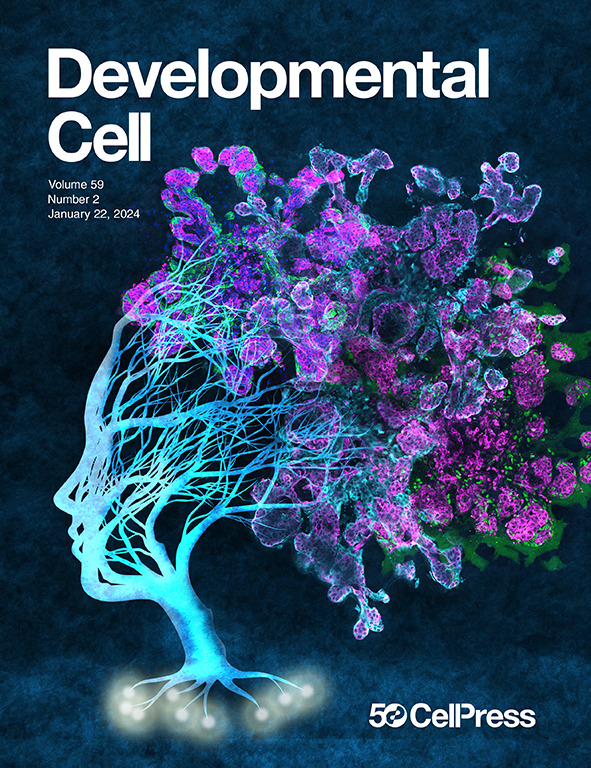Bro1 proteins determine tumor immune evasion and metastasis by controlling secretion or degradation of multivesicular bodies
IF 10.7
1区 生物学
Q1 CELL BIOLOGY
引用次数: 0
Abstract
Exosomes play pleiotropic tumor-promoting functions and are secreted by fusion of multivesicular bodies (MVBs) with the plasma membrane. However, MVBs are also directed to lysosomes for degradation, and the mechanism controlling different fates of MVBs remains elusive. Here, we show that the pro-tumor protein WDR4 enhances exosome secretion from mouse and human cancer cells through degrading the endosomal sorting complex required for transport (ESCRT)-associated Bro1-family protein PTPN23. Mechanistically, PTPN23 and ALIX compete for binding to syntenin, thereby directing MVBs toward degradation and secretion, respectively. ALIX, but not PTPN23, recruits actin-capping proteins CAPZA1/CAPZB to prevent branched filamentous actin (F-actin) accumulation around MVBs, thus enabling MVBs trafficking to the cell periphery for secretion. Functionally, WDR4/ALIX-dependent exosomes load a set of pro-tumor proteins through LAMP2A, thereby potentiating metastasis and immune evasion in mice. Our study highlights a previously unappreciated coupling between the biogenesis mechanism and the fate decision of MVBs and its importance in determining exosomal cargos, which have a profound impact on tumor progression.

求助全文
约1分钟内获得全文
求助全文
来源期刊

Developmental cell
生物-发育生物学
CiteScore
18.90
自引率
1.70%
发文量
203
审稿时长
3-6 weeks
期刊介绍:
Developmental Cell, established in 2001, is a comprehensive journal that explores a wide range of topics in cell and developmental biology. Our publication encompasses work across various disciplines within biology, with a particular emphasis on investigating the intersections between cell biology, developmental biology, and other related fields. Our primary objective is to present research conducted through a cell biological perspective, addressing the essential mechanisms governing cell function, cellular interactions, and responses to the environment. Moreover, we focus on understanding the collective behavior of cells, culminating in the formation of tissues, organs, and whole organisms, while also investigating the consequences of any malfunctions in these intricate processes.
 求助内容:
求助内容: 应助结果提醒方式:
应助结果提醒方式:


